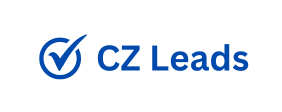Should brands engage in culture wars? I don’t think most companies have that in their mission, so my answer is simple: no.
The dangers of such “speaking up” were learned quite hard and painfully by the Bud Light brand in the US, which was effectively deprived of its market leadership position by a consumer boycott .
All social media platforms are filled with extreme telegram marketing voices and extreme opinions. The goal of brands, communicatively present in the most popular social media, should not be to speak out and judge political debates, but rather to fulfill their business mission.
The introduction of a good brand safety solution on platforms such as X (nomen omen ex-Twitter) allows for the effective coexistence of business and freedom of expression. I would bet that over time, however, the content that is monetized and therefore “safe” will win out.
Contents:
- How to reconcile freedom of speech and profits?
- Will the metaverse survive?
- Disney follows in Netflix’s footsteps
- Job Interview on Roblox
- Amazon wants to share content on social networks see employees in the office
- Regulations that protect against AI
- AI employed in logistics
- Stanford University Reddit
- In-stream are now skippable
- X delays redirects
- Threads is losing users
- Influencer anti greenwashing
- McDonald’s reminds us of its place in pop culture
- Shorts in GreenLetter
- Weekly Tool at GreenLetter
How to reconcile freedom of speech and profits?
This is a question that X (formerly Twitter) owner Elon Musk has been asking himself for some time. Despite the platform’s denials, nonprofits have reported an increase in hate speech on the service. Advertisers don’t want to risk having their content displayed near hurtful opinions – it’s becoming increasingly popular to pause campaigns on X. To address the problem, the former Twitter and Integral Ad Science are developing a system that identifies the type of content in order to return control to advertisers, even if minimal moderation is still expected to reign supreme on the platform. The new system, which allows users to choose “Strict,” “Standard,” or “Loose” content filters for uploaded ads, will go live by the end of the year.
📰 MarketingDive
Will the metaverse survive?
According to the latest study by Bain & Company, yes. Although the hype surrounding the metaverse has now significantly diminished, it is still something to be reckoned with. According to the report, the metaverse market could be worth an impressive $900 billion by 2030. Virtual experiences (e.g. gaming, concerts, and other online events) are bulk lead expected to account for about 65% of the market, followed by app stores and operating systems (10%), devices (10%), infrastructure (10%), and content creation tools (5%). The study also tells us that the metaverse will not be a single platform, but rather a combination of multiple platforms with large user bases.


